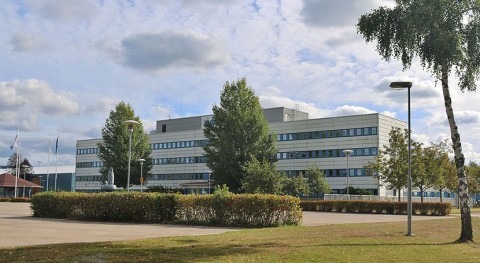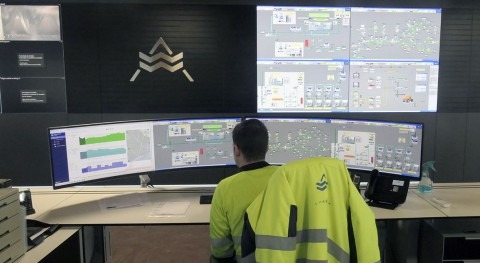Air Selangor is a large water distribution company owned by the Malaysian state of Selangor. The public utility serves a population of 8.4 million residents and manages over 3,800 miles (6,200 kilometers) of trunk mains, ranging from 300 mm up to 2200 mm, with much of the pipelines located in remote areas of the state.
As a national water company making efforts to cost-effectively manage its network, Air Selangor wanted to reduce its high rate of non-revenue water loss (NRW), or water lost due to leaking pipes, broken meters or unauthorized use – which in 2017 stood at 33.3%.
Air Selangor had concerns about its aging infrastructure and took a proactive approach to reduce leaks and bursts.
The company wanted to identify the causes of pressure surges, also known as transients, to mitigate the damage they can cause, leading to a reduced lifespan of its pipes. By identifying leaks before they become more serious bursts, repairs can be made without requiring line shutdown or without disrupting water supply to the local community.
Delayed leak discovery and unknown causes of surges
In the past, Air Selangor used a variety of techniques to identify leaks and bursts. However, there was still a need for a quicker response to minimize the runtime of leaks and bursts and the disruption caused. Historically, the utility faced a long runtime of leaks before discovery, often due to the remote geographical location of its trunk main network. Furthermore, pressure transients were known to be an issue within the network, but without information on their sources or causes.
Air Selangor also noticed that leaks often recurred on the same pipelines, causing concern and harming the utility’s reputation. Air Selangor actively sought innovative ideas for continuous monitoring to identify leaks and pressure surges earlier, reduce NRW and improve customer relations.
Real-time monitoring for leak, burst and surge detection
Air Selangor partnered with Xylem to develop a long-term, state-wide monitoring program to improve asset reliability and resiliency. Xylem Water Loss Management provides real-time digital monitoring and a sensing platform that brings together leak, burst and surge detection to help Air Selangor prevent premature asset failure across the system.
The solution combines and analyzes analytics from two major leak detection methodologies – pressure transients and hydrophones, units for underwater sound recording – to help utilities localize pipe bursts within minutes and detect slowly growing leaks.
This automated monitoring process, which analysts supervise 24/7, simplifies the analysis, visualization and interpretation of massive quantities of data and helps repair crews prioritize their response.
The Xylem Water Loss Management solution for surge detection is a non-invasive and cost-effective way to monitor water networks for the presence of damaging pressure surges. Through its inline detection of pressure transients, the solution helps determine the source of these events and identifies pipes under stress with high likelihood of leakage. This early warning helps manage damaging pressure variations and mitigate the risks associated with premature pipe failure, prolonging the effective life of infrastructure assets.
Identifying two leaks per week
The monitoring program started in 2018, with 500 sensors successfully deployed in the first year, and 65 major leaks and bursts identified and repaired through close collaboration with Air Selangor. The program continues today, with ongoing installation of new sensors brought into operation daily (as of January 2021, Air Selangor had deployed 1,600 sensors).
The Air Selangor–Xylem analytics team is identifying two leaks per week, with 295 found as of January 2021. The continuous monitoring for leaks helps Air Selangor achieve its NRW targets. Using traditional methods, these pipelines may not have been inspected for months or years.
Data from high resolution pressure and acoustic sensors have enabled important insights into the operation of Air Selangor’s network and the nature and distribution of leaks on the trunk mains. In addition, the transient pressure monitoring has identified operational issues related to pump changeovers, allowing Air Selangor to implement interventions to prevent premature failure of assets across their system.


















